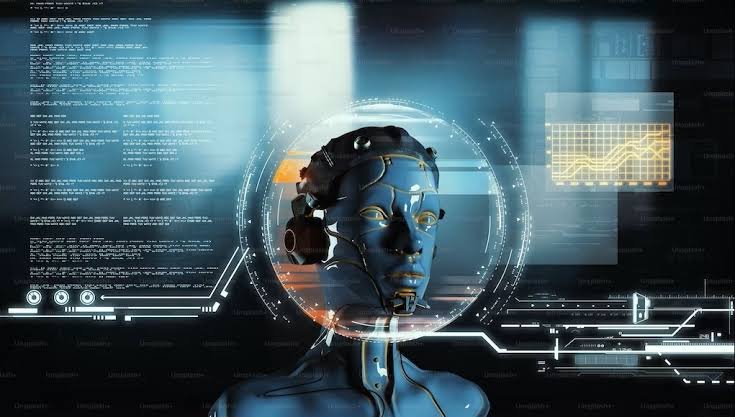Ethical Implications of Artificial Intelligence: Navigating the Future with Responsibility
Artificial Intelligence (AI) has reshaped various aspects of society, from healthcare to finance, transportation, and even the legal system. While AI promises remarkable advancements, it also raises numerous ethical questions. These concerns range from privacy issues and job displacement to bias in decision-making algorithms. As we continue integrating AI into our daily lives, it is essential to navigate its implications responsibly and ethically to maximize its benefits while minimizing risks.
The Power and Responsibility of Artificial Intelligence
AI systems are powerful tools capable of analyzing massive data sets, identifying patterns, and making predictions with remarkable speed and accuracy. However, the very characteristics that make AI valuable—its ability to automate, predict, and even recommend actions—also demand careful consideration of how it is developed and deployed. The ethical implications of artificial intelligence are multifaceted, extending beyond technical challenges to impact social, economic, and cultural dimensions.
One of the most pressing ethical issues in AI is privacy. AI-driven data analysis can reveal sensitive information about individuals, often without their knowledge or consent. For instance, facial recognition software can identify individuals in public spaces, potentially infringing on their privacy. Furthermore, many AI algorithms rely on data that includes personal information, raising concerns about data security and the right to privacy. For AI to be ethical, data collection, storage, and usage must prioritize user privacy, adhering to principles such as data minimization and transparency.
Bias and Fairness in AI Systems
Another significant concern is algorithmic bias. Since AI systems are often trained on historical data, they can inherit biases present in these datasets. For instance, an AI system trained on hiring data that reflects past discrimination may continue to favor certain demographics over others. Such biases can result in unfair treatment, perpetuating discrimination in areas like hiring, lending, and law enforcement. To navigate these challenges responsibly, developers must implement checks and balances to identify and mitigate biases in AI systems. Techniques such as diverse training data, transparency in algorithms, and regular audits can help ensure AI models promote fairness.
Job Displacement and the Need for a Human-AI Partnership
The advent of AI has raised concerns about job displacement. Automation through AI has the potential to replace routine tasks in sectors such as manufacturing, customer service, and even professional services. While AI may increase productivity and efficiency, it could also lead to job losses, impacting the livelihoods of countless individuals. Addressing this requires a balanced approach that promotes a human-AI partnership. By focusing on reskilling and upskilling the workforce, societies can help individuals transition to roles that complement AI technologies rather than compete with them. Governments and organizations must work together to create programs that prepare the workforce for a future where AI is integral to almost every industry.
Ensuring Accountability and Transparency
As AI systems make decisions that affect people’s lives, there is an increasing need for accountability and transparency in AI processes. When an AI model makes a decision—such as denying a loan application or diagnosing a medical condition—individuals should have the right to understand how that decision was made. This is particularly important in scenarios where AI decisions have far-reaching consequences. To foster trust in AI, companies must ensure that AI systems are transparent and that their decisions can be explained in human terms. In many cases, AI operates as a “black box,” where even developers cannot fully explain how certain decisions are made. Embracing explainable AI can bridge this gap, ensuring AI systems act as trustworthy tools rather than mysterious forces.
Towards a Global Ethical Framework for AI
With AI technologies advancing rapidly, there is a pressing need for global regulations and ethical guidelines. AI does not recognize borders, making international cooperation essential. Governments, organizations, and research institutions must collaborate to establish standards that ensure AI is used ethically across the globe. Initiatives such as the European Union’s General Data Protection Regulation (GDPR) offer a model for AI privacy standards. Meanwhile, ethical frameworks such as those proposed by the Institute of Electrical and Electronics Engineers (IEEE) aim to promote fairness, accountability, and transparency in AI systems.
Navigating the Future with Responsibility
As we look to the future, we must approach AI with caution, understanding its potential while remaining vigilant about its ethical implications. The responsibility of guiding AI development lies not only with technologists but also with policymakers, organizations, and society as a whole. By fostering ethical practices in AI, we can ensure that this transformative technology benefits humanity in a fair, transparent, and responsible manner. Navigating the future with responsibility requires a commitment to developing and deploying AI with an ethical foundation, promoting fairness, accountability, and human dignity at every step.
In conclusion, the ethical implications of artificial intelligence are profound and far-reaching. By addressing these concerns proactively, we can harness AI’s potential while safeguarding fundamental human values. The future of AI promises remarkable advancements, but realizing this potential requires a commitment to ethical principles that prioritize privacy, fairness, transparency, and accountability. Through collaborative efforts and responsible innovation, we can create an AI-powered future that aligns with our highest ideals and enhances the quality of life for all.




